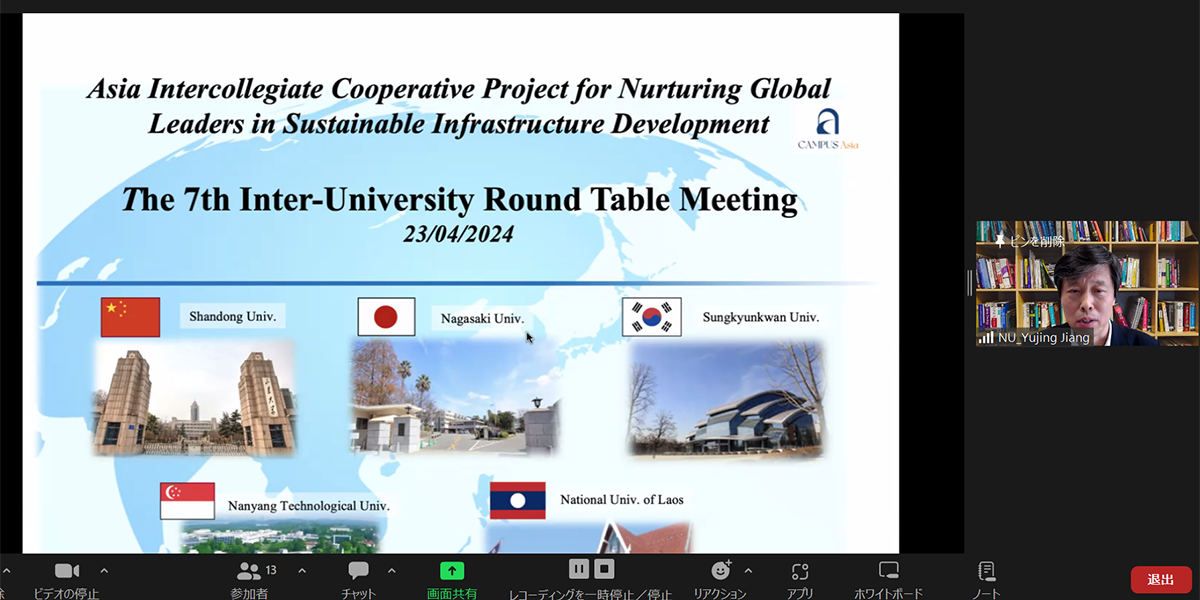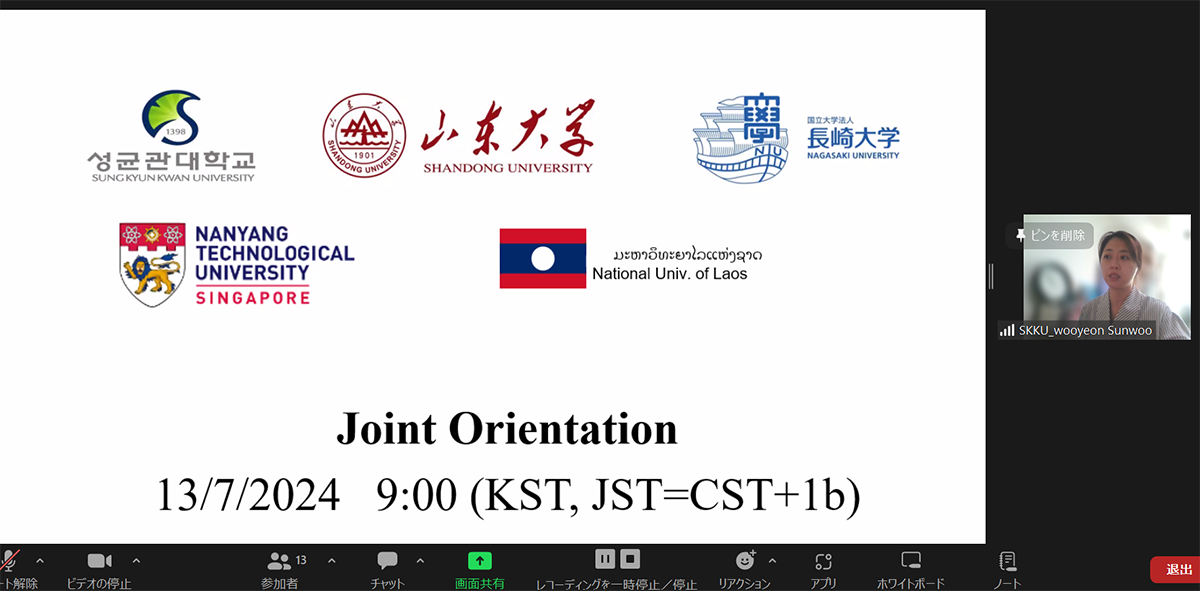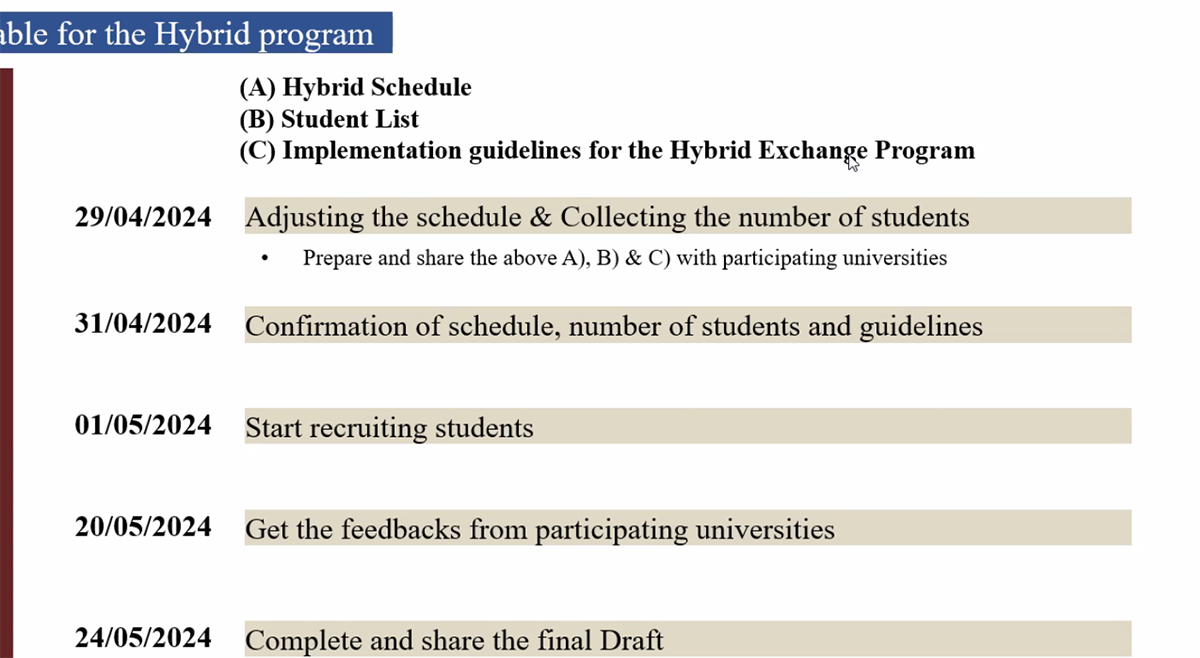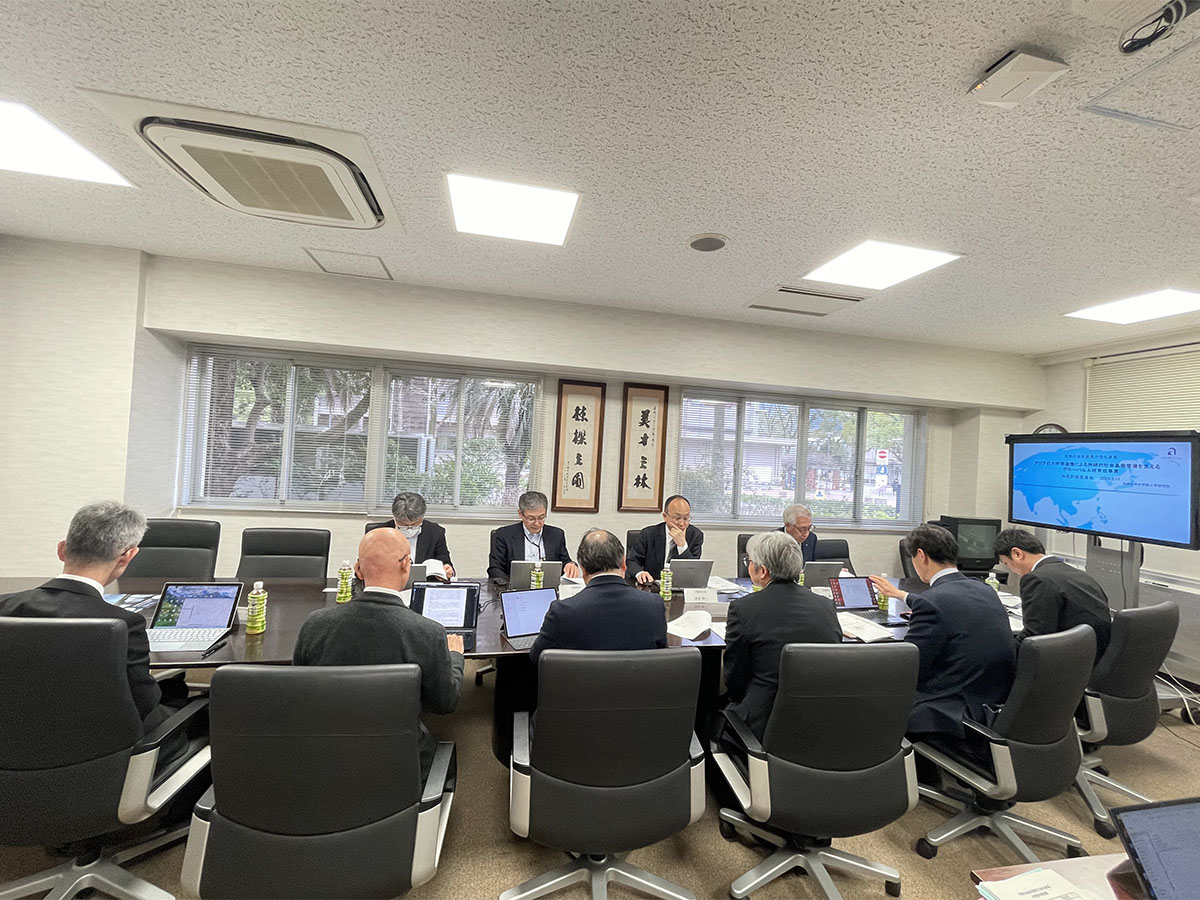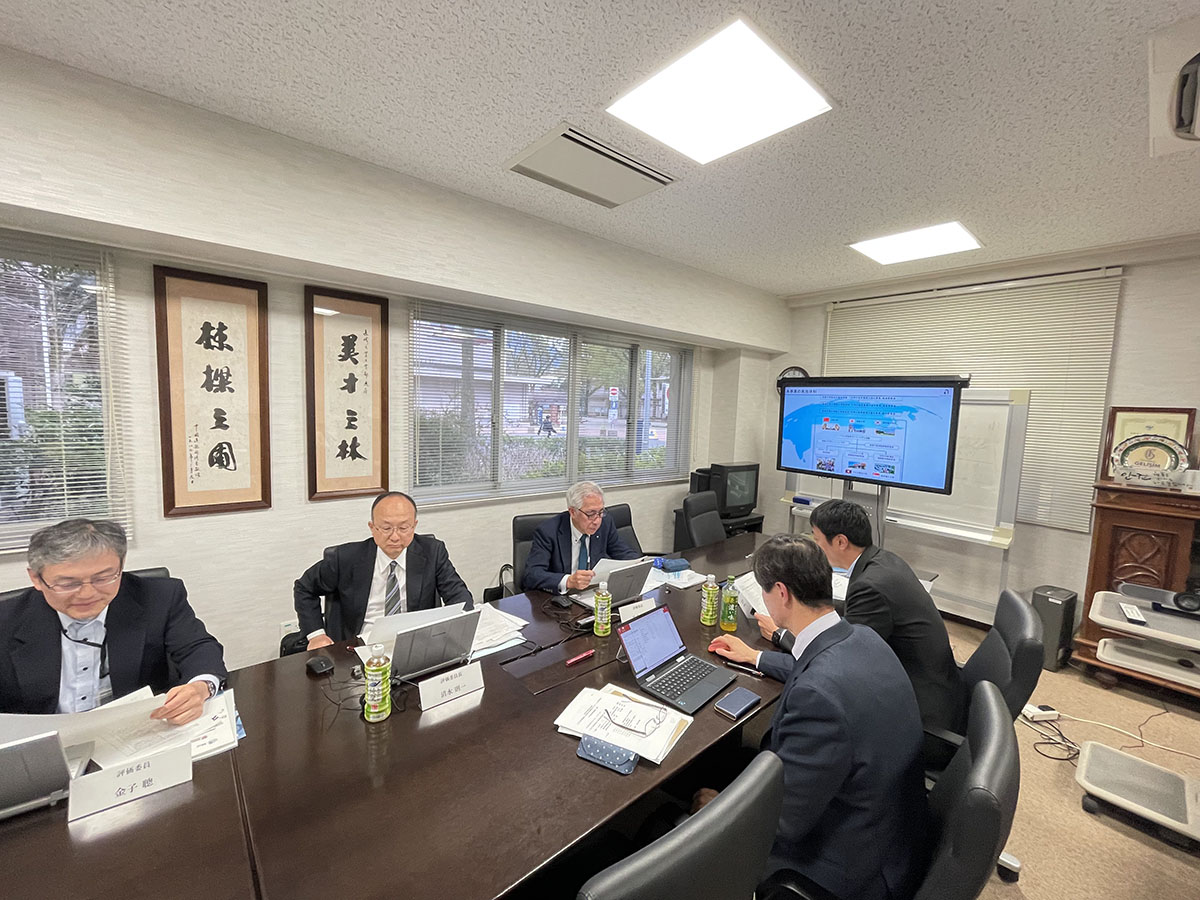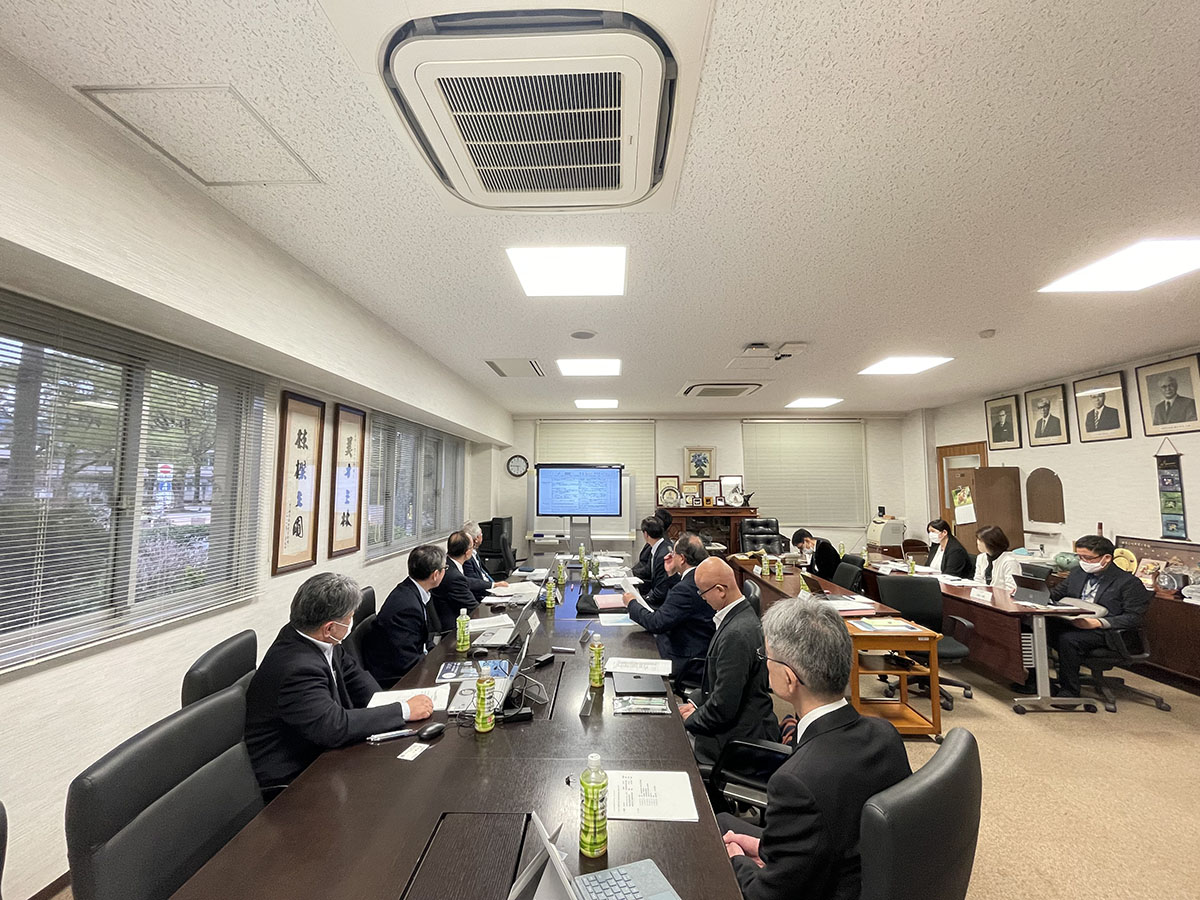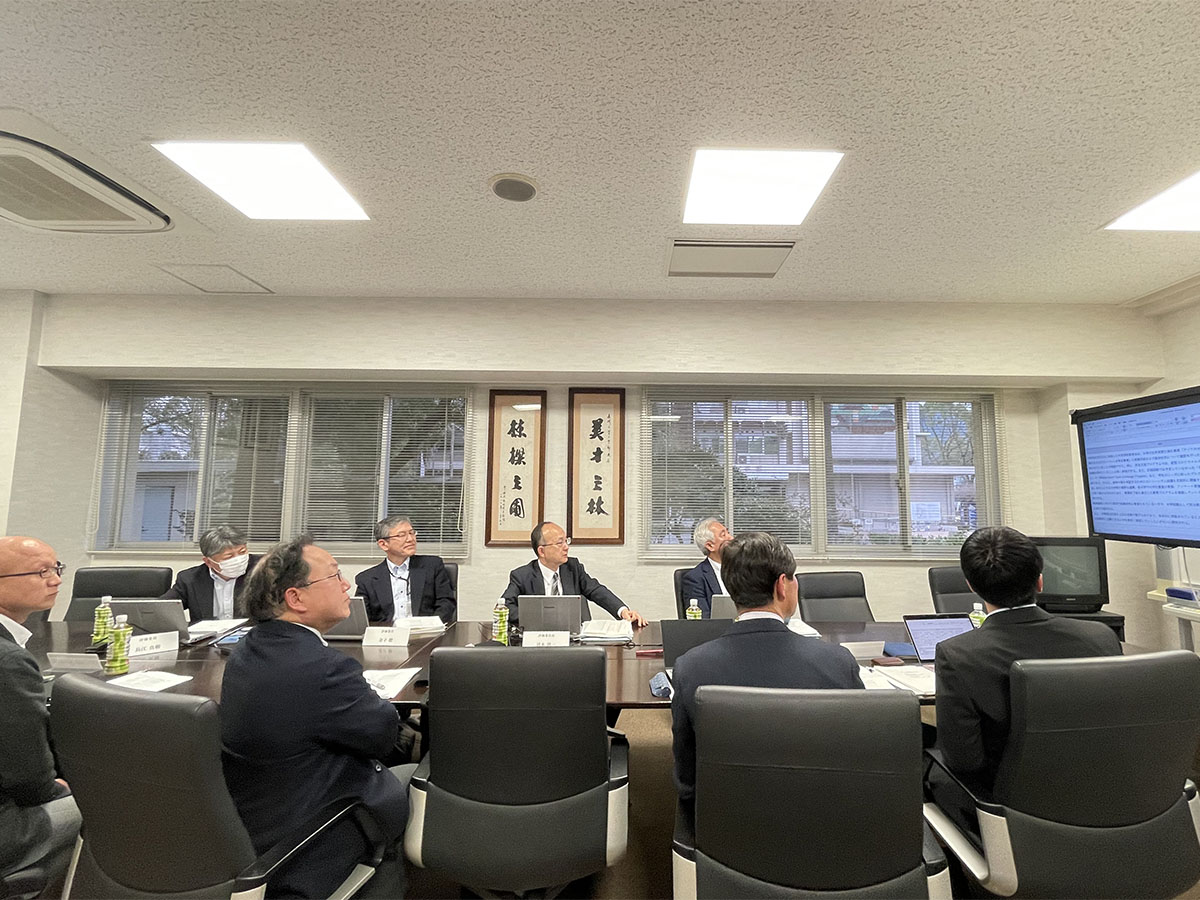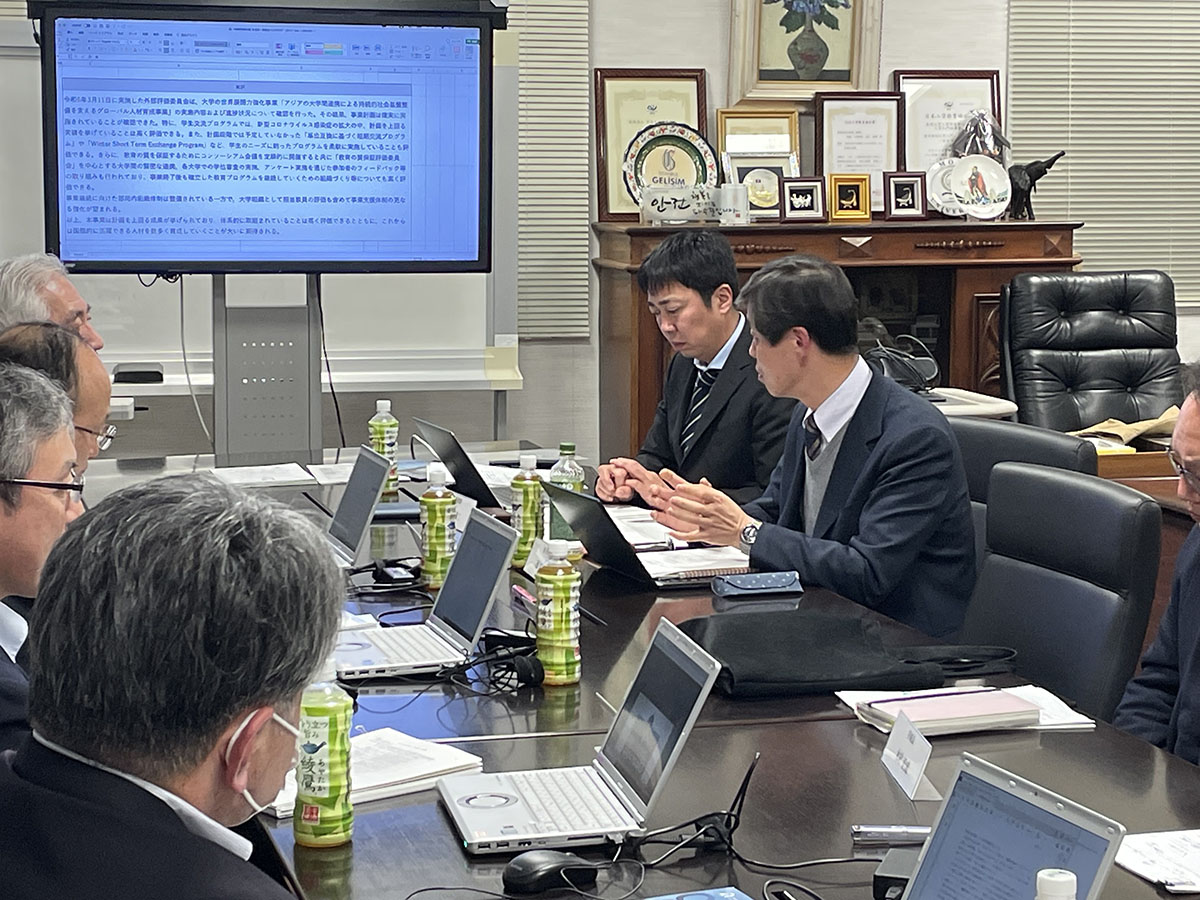The 7th Working-Level Round-Table Meeting on Campus Asia Program
The 7th Working-Level Round-Table Meeting on Campus Asia Program was held online on April 23, with the participation of Shandong University (China), Sungkyunkwan University (Korea), National University of Laos, Nanyang Technological University (Singapore), and Nagasaki University. At this meeting, discussions were held mainly on the “2024 Hybrid Short-Term Exchange Program”, and this year’s host, Sungkyunkwan University, gave a detailed explanation on the implementation plan. As a result, it was decided that the overall schedule would be from July 13 to August 28, with online lectures from July to early August, followed by the actual study abroad program in the order of Korea, China, and Japan. After the program at Nagasaki University, additional study abroad programs in Laos and Singapore are also planned, depending on how the academic calendars of each university are adjusted. The number of participants and the details of student support plan at each university have largely been decided, and each university will now work on specific preparations, such as recruiting students and adjusting lecture contents and schedules.
Next, NU’s Associate Professor Suzuki explained the plan between Nagasaki University and National University of Laos for the “ASEAN Extended Short-Term Exchange Program,” which will be fully implemented from this academic year. He also said that Nagasaki University will start concrete preparations based on this plan, and that he expects other universities to initiate active discussions between the two universities toward its implementation as well.
Associate Professor Suzuki also explained Nagasaki University’s plan on inviting special research students to NU’s Graduate School of Integrated Science and Technology for laboratory exercises, as part of the “International Collaboration Lab” scheme. The International Collaboration Lab is one of the important components of the CAMPUS Asia Program and was launched to boost active research exchange not only among students but also among faculty members.
Lastly, the results of the interim evaluation conducted last fall by the Ministry of Education, Culture, Sports, Science and Technology (MEXT) were released last month, and it was reported that this program received an “A” grade. The comments from the Ministry were also shared, and the meeting was concluded with the confirmation that the five universities will continue to cooperate with each other to further enhance the program and ensure its smooth and steady implementation.
